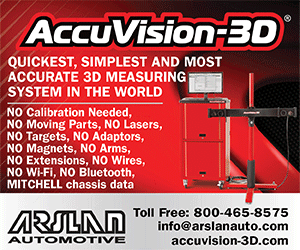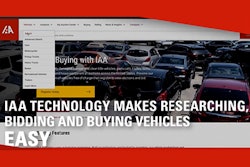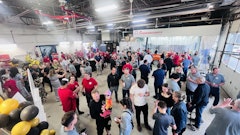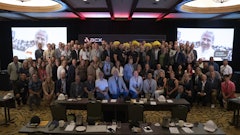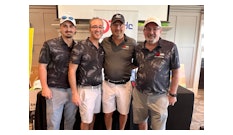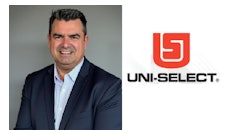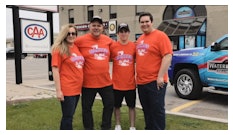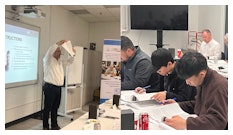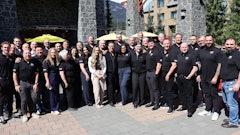
Let’s debunk some common collision repair arguments
Column by STEFANO LIESSI
I engage with many technicians and managers in our shops across the country—not to mention, I also troll the odd forum and read the comments. In doing so, I have encountered some of the most outlandish, unsubstantiated, ridiculous remarks by various industry representatives. Some of our front-end staff deserve gold medals for what they deal with daily. Before I share some of these tidbits with you, let me express something here; it is not an exhaustive list of the baffling claims we hear on a regular basis; I am sure there are more. Whether you are a manager, estimator, insurer, supplier, banner, or independent, let us put all the bureaucratic politics aside and look solely at the basic facts of the banter I shall now present. Names of the accused have been withheld to protect the guilty.
“That’s included.” → Please…before you relay this message, read the ‘P’ Pages. The information contained in them directly reflects what is and is not included in operations.
“It is shop supplies and materials.” → Contrary to popular belief, it is not. It is a car part; the car came with it from the factory and leaves here with it. The “part tag” does not state “consumable shop supply or material.” However, if you wish me to break out the duct tape or some mucilage, you might have an argument.
“It’s a cost of doing business.” → Apparently, the general studies of business have eluded you. The cost of doing business is the associated costs that enable a facility to run a business, ergo insurance, licenses, benefits, taxes, and anything not directly related to the repair itself. The repair is the business. Care for a coffee in the lovely, maintained office space we rent to accommodate customers?
“We/you will make it up on the next one” → Unfortunately, we never have, and never will. In fact, you will lose on the next one as well. When a shop loses money on a repair, it is partly due to the fact they are already discounting some component of the service; pair this with being put in a position where you are knowingly taking a loss, (not being paid for material or operation) this starts a vortex of favours. You would have to double your profit on the next job to break even possibly. “Today’s favour is tomorrow’s expectation”; therefore, you will still lose.
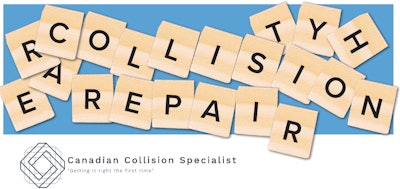
“It’s not necessary for the repair.” → Sure, I just decide to make stuff up. The repair plan is developed based on procedures, the OEM as an engineer, has the knowledge to advise what is necessary and not necessary for the repair; this is why the information is made available, to support what is necessary.
“Do you expect me to read all of these procedures?’ → Of course, the documents have no merit, and I have nothing better to do with my time. To be fully honest, I do not care if you read them or don’t. I expect you to understand what these documents contain, and I expect you to understand that they serve a purpose for your file; if anything ever lands in litigation, I have provided all the support needed for this repair.
“OEM Procedures are only recommendations.” → Gold star for the risk taker in the room. Yes, they are procedures recommended to keep my accountability in check as I repair this customer vehicle back to pre-loss OE condition, like the guidelines and processes the manufacturer would have used in the beginning, knowing that one day the possibility of a lawsuit is lingering in the background. I guess 23,000 engineers could be wrong at GM. But hey, let’s roll the dice with that.
“The customer is in a rental.” → Oh, that’s right. I forgot that the amount of rental coverage that Edna didn’t purchase dictates the cycle time of the repair. I thought the repair time, which is dictated by the severity of repairs, would dictate the length of rental needed. Oh, what a fool believes. Let us get the customer another coffee and a magazine; we may be a while.
“We/they don’t pay for that.” → By this rationale, one can arbitrarily choose what they do or don’t pay for?! Even if it is a required part of the service? If the operation is not performed, then yes, I see the merit of that statement. But I was unaware you could veto something based on the actions of others in the past or your feelings.
“You are the only one asking for this.” → I am certain I am not. If that really is the case, have I inconvenienced you by doing my job correctly? It doesn’t matter to me what everyone else is asking for; what matters is that I am doing things correctly, as for the others, not my pig, not my farm.
“We don’t pay to measure unless it’s out of spec.” → Think about this for a moment; let it marinate. The only way to know if the vehicle needs to be measured is to measure it!
Our entire industry relies on communication to provide our customers with good service. Unsubstantiated rhetoric does nobody any favours; the customer, the shop, the vendors, and the payees suffer from this. When staff are faced with these discussions regularly, it becomes very tiresome.
I hope you found a little enlightenment from this article and that it made you smile; however, rationalizing these types of statements is not entertaining but damaging.
In my opinion, and you are entitled to my opinion, it is time we get the job done correctly. Please stop with the schoolyard antics by accepting your responsibilities and accountability, not rationalizing them.



